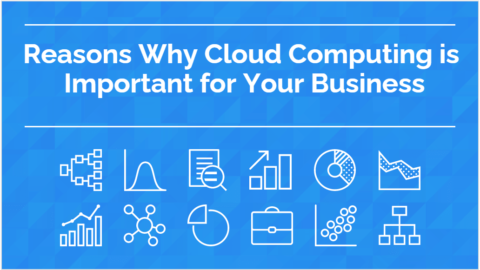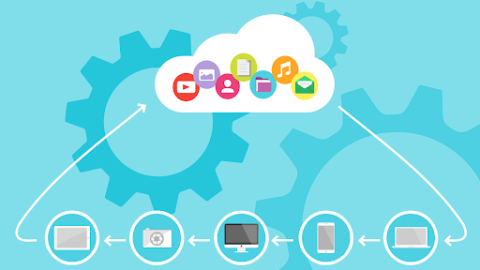The Power of Cloud Computing in the Gaming Industry
The gaming industry, a dynamic and rapidly evolving sector, has experienced monumental transformations over the years. Among these changes, cloud computing emerges as a pivotal force. The sophisticated integration of cloud technologies is reshaping the way games are developed, distributed, and played. Let’s therefore delve deeply into unraveling The Power of Cloud Computing in the Gaming Industry and meticulously explore its multifaceted technical nuances.
Table of Contents
Game Streaming and On-Demand Gaming
Reduced Hardware Dependency
Beginning with cloud-based game streaming services, such as Google’s Stadia or NVIDIA’s GeForce Now, we see a drastic reduction in hardware dependency. Here, games are run on powerful servers located in extensive data centers, and the video output is seamlessly streamed to users’ devices. Consequently, gamers no longer require high-end, expensive hardware to enjoy the latest titles; a device equipped with a decent internet connection and streaming capability suffices.
Dynamic Resource Allocation
Moreover, cloud servers possess the capability to allocate resources dynamically, based on the immediate demands of the game. Also, this dynamic provisioning ensures that games operate smoothly, maintaining high frame rates and low latency, irrespective of the graphical demands or the number of active players.
Game Development and Testing
Collaborative Development
Moving on to the development phase, cloud platforms like AWS, Azure, or Google Cloud present tools that enable game developers from different locations to collaborate in real-time effectively. Also, these tools allow access to the same assets, software kits, and development environments, which guarantees consistency and speed in game development.
Scalable Testing Environments
Furthermore, developers have the flexibility to quickly spin up virtual instances to test games under various conditions and loads, ensuring that games are meticulously optimized for performance before their public release, negating the need for massive in-house testing infrastructure.
Massive Multiplayer Online Games (MMOs) and Backend Support
Real-time Data Sync
In the context of MMOs, where thousands of players interact in a shared real-time environment, cloud databases play a crucial role in ensuring that player data, and game states. Also, in-game economies are synchronized in real-time, providing a cohesive and seamless experience to all users.
Distributed Gaming Architecture
Additionally, rather than relying solely on a single server, MMOs can leverage distributed cloud architectures. Also, this approach helps in balancing the load across several servers and ensuring consistent game uptime, even in cases where a particular server encounters issues.
AI Integration and Enhanced Gaming Experiences
AI-Powered Game Mechanics
Venturing into the realm of Artificial Intelligence, cloud-based AI services are enabling the incorporation of adaptive difficulty levels, responsive NPCs (Non-Player Characters), and dynamic storylines, resulting in a more personalized and engaging gaming experience.
Predictive Analytics
Similarly, predictive analytics powered by cloud facilitate a deeper understanding of player behavior, helping developers decipher player preferences and predict emerging trends, which is invaluable for the meticulous optimization of games and the strategic development of future titles.
Efficient Game Distribution and Updates
Direct-to-Device Distribution
This eliminates the need for physical copies and third-party distributors.
Seamless Updates and Patches
Cloud hosting enables developers to push updates or new content effortlessly. Also, players get instant updates, avoid long downloads, and always play the latest game version.
Tips and Tricks for Leveraging Cloud Computing in Gaming
Navigating the gaming industry’s changing landscape requires the smart use of cloud computing. Selecting the best cloud provider, using multiple cloud strategies, ensuring low latency, and focusing on security. Also, engaging with players helps developers maximize the benefits of cloud computing in gaming.
FAQs on Cloud Computing in the Gaming Industry
1. What is cloud gaming? Cloud gaming is a way to play games streamed from powerful servers over the internet, eliminating the need for high-end gaming hardware on the user’s end.
2. How does cloud gaming benefit players? Cloud gaming allows players to enjoy high-quality games on modest devices. Also, there’s no need to buy or upgrade expensive hardware, leading to cost savings.
3. Which companies offer cloud gaming services? Companies like Google (with Stadia), NVIDIA (with GeForce Now), and Microsoft (with Project xCloud) are major players in the cloud gaming space.
4. How is game development impacted by cloud computing? Cloud computing allows developers to collaborate from various locations, provides scalable testing environments, and makes it easier to roll out updates or new content to games.
5. Do I need a fast internet connection for cloud gaming? Yes, a stable and speedy internet connection is crucial for a smooth cloud gaming experience to ensure low latency and high-quality streaming.
Tips and Tricks for Optimizing Your Cloud Gaming Experience
Start with a Strong Internet Connection:
Firstly, for an optimal cloud gaming experience, prioritize a robust and fast internet connection. A wired connection often offers more stability than Wi-Fi.
Choose the Right Service:
Next, research various cloud gaming services available. Look into their game libraries, pricing, and user reviews to find a platform that aligns with your preferences.
Prioritize Low Latency:
Additionally, keep an eye out for services that boast low latency. The quicker the response time between your input and the game’s reaction, the better your gaming experience.
Stay Updated:
Moreover, ensure your device’s software, as well as the cloud gaming platform’s app or client, is always up-to-date. Regular updates often bring performance improvements and new features.
Optimize Display Settings:
Transitioning to the visual aspect, adjust in-game settings to match your device’s capabilities. This can help in achieving smoother gameplay.
Use Compatible Hardware:
Furthermore, although cloud gaming reduces the need for high-end local hardware, using compatible controllers or peripherals can enhance the experience.
Monitor Data Usage:
Especially if you’re on a limited data plan, keep track of how much data cloud gaming uses. Some services offer data usage controls or settings to adjust stream quality based on bandwidth.
Conclusion
In wrapping up, The Power of Cloud Computing in the Gaming Industry is revolutionary. Beyond technical perks, it’s a game-changer, ushering inaccessible and immersive play. The bond between cloud computing and gaming is strengthening. Also, this union promises new heights in interactive entertainment. Simply put, cloud-enhanced gaming foretells a brighter, richer future for players everywhere.
Hello, I’m Cansu, a professional dedicated to creating Excel tutorials, specifically catering to the needs of B2B professionals. With a passion for data analysis and a deep understanding of Microsoft Excel, I have built a reputation for providing comprehensive and user-friendly tutorials that empower businesses to harness the full potential of this powerful software.
I have always been fascinated by the intricate world of numbers and the ability of Excel to transform raw data into meaningful insights. Throughout my career, I have honed my data manipulation, visualization, and automation skills, enabling me to streamline complex processes and drive efficiency in various industries.
As a B2B specialist, I recognize the unique challenges that professionals face when managing and analyzing large volumes of data. With this understanding, I create tutorials tailored to businesses’ specific needs, offering practical solutions to enhance productivity, improve decision-making, and optimize workflows.
My tutorials cover various topics, including advanced formulas and functions, data modeling, pivot tables, macros, and data visualization techniques. I strive to explain complex concepts in a clear and accessible manner, ensuring that even those with limited Excel experience can grasp the concepts and apply them effectively in their work.
In addition to my tutorial work, I actively engage with the Excel community through workshops, webinars, and online forums. I believe in the power of knowledge sharing and collaborative learning, and I am committed to helping professionals unlock their full potential by mastering Excel.
With a strong track record of success and a growing community of satisfied learners, I continue to expand my repertoire of Excel tutorials, keeping up with the latest advancements and features in the software. I aim to empower businesses with the skills and tools they need to thrive in today’s data-driven world.
Suppose you are a B2B professional looking to enhance your Excel skills or a business seeking to improve data management practices. In that case, I invite you to join me on this journey of exploration and mastery. Let’s unlock the true potential of Excel together!
https://www.linkedin.com/in/cansuaydinim/










